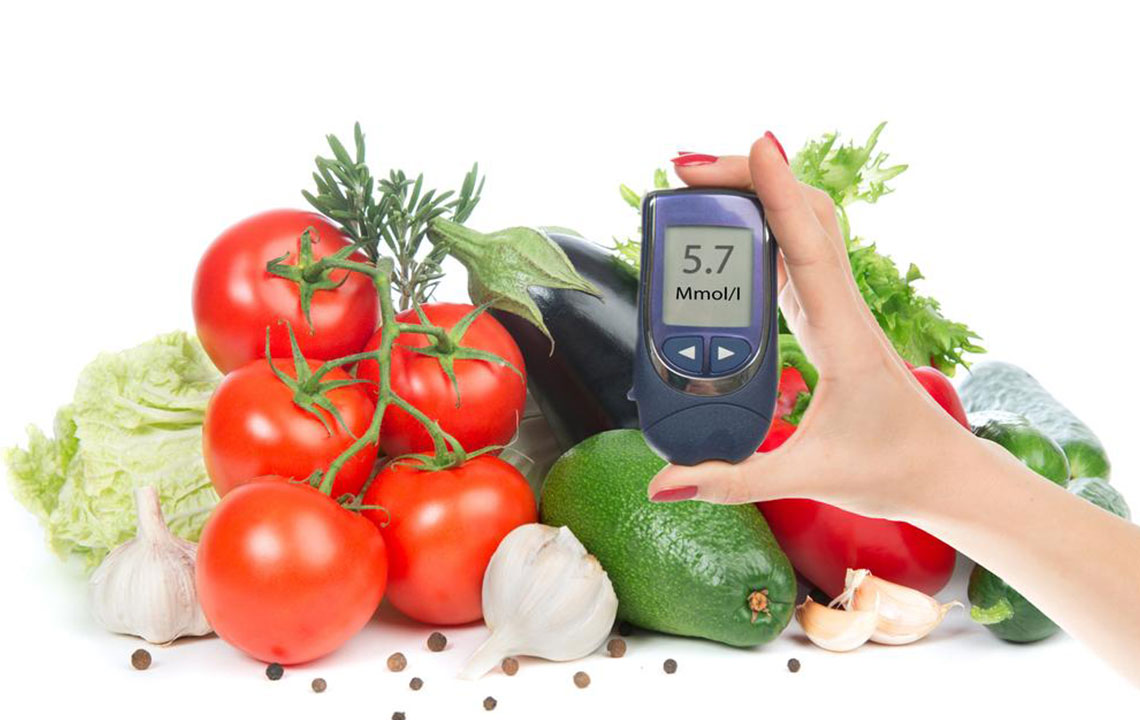5 dietary plans for diabetes
Diabetes mellitus most commonly referred as diabetes is a metabolic disease in which the body’s ability to produce insulin is affected. When insulin is impaired, it creates abnormality in the metabolism of carbohydrates, resulting in increased level of glucose in the blood.
Some facts on diabetes
• Diabetes is a long-term condition which is the cause of high blood sugar levels.
• Type 1 Diabetes – In this, the body lacks the ability to produce insulin.

• Type 2 Diabetes – In this, the body fails to produce enough insulin for proper functioning. A large percentage of people suffer from type 2 diabetes.
• Common symptoms of diabetes include frequent urination, intense thirst and hunger pangs, weight gain, fatigue, cuts and bruises that do not heal, unusual weight loss, male sexual dysfunction, and numbness and tingling in hands and feet.
• If you are suffering from Type1 diabetes, you should follow a healthy eating plan, exercise regularly, and take insulin on time.
• Type 2 patients need to be physically active, eat healthily, and regularly test their blood glucose. In many cases, insulin, and/or oral medication is given to control their blood sugar levels.
• As the risk of cardiovascular disease is higher in a diabetic person, cholesterol and blood pressure should be monitored regularly.
• A diabetic smoker should immediately quit smoking, as it will prove hazardous to his health if he doesn’t.
The best diets for diabetes
People with diabetes have almost double the risk of heart disease and are at a greater risk of developing mental health problems, such as depression. However, most of the type 2 case diabetes can be prevented and even be reversed.
A diabetic patient should go for lean proteins and high fiber food. Fruits, vegetables, low-fat dairy, and healthy vegetable-based fats, such as olive and canola oil should be included in the diet. Carbohydrate intake should be limited, complex carbohydrates should be included in the diet.
Foods to reduce
Diabetic people should limit the intake of certain food items. Following are the items that may cause an increase in the cholesterol and blood sugar level.
• Processed grains, such as pasta or white rice
• Fruits with added sweeteners, such as apple sauce, jam, and canned fruits.
• Full-fat dairy products
• Foods which have unsaturated fats or trans fats
• Foods made from refined flour
• Foods with high glycemic load
The dietary approach to prevent hypertension (DASH) plan
The DASH plan, originally introduced to prevent high blood pressure (hypertension), may also help in case of other diseases, such as diabetes.
The DASH eating plan includes:
• Lean protein – fish, poultry
• Plant-based foods – fruits, vegetables, beans, nuts, seeds
• Dairy – fat-free or low-fat
• Grains – whole grains
• Healthy fats -vegetable oils
The plan also limits sugary beverages, sweets, and red meat.
The Mediterranean diet
This diet is inspired by traditional Mediterranean foods. This diet is extensively rich in oleic acid, which is a fatty acid found in animal and vegetable-based fats and oils. This diet may lower fasting glucose levels, reduce body weight, and reduce the risk of the metabolic disorder.
Foods eaten on this diet include:
• Protein, such as poultry, salmon and other fatty fish, and egg.
• Plant based foods, such as fruits, vegetables like artichokes and cucumbers, beans, seeds
• Nuts, such as almonds, olive oil, healthy fats
• It is safe to have red meat once per month. Wine may also be consumed in moderation, as it may boost heart rate.
The Paleolithic (Paleo) diet
This diet is entirely based on what our ancestors used to include in their daily diets.
Foods consumed in this type of diet include:
• Protein – Fish, meat, and poultry
• Plant-based foods – Fruits, non-starchy vegetables, seeds, nuts (excluding peanuts)
• Healthy fats – Olive oil, canola oil, avocado oil, coconut oil, flaxseed oil, walnut oil
The gluten-free diet
Gluten is a protein which is found in wheat, rye, barley, and all foods made from grains. Some people have celiac disease, and for them, it is necessary to avoid gluten. One should talk to their doctor whether a gluten-free diet is right for you. One should keep in mind that a gluten-free diet is not synonymous with low carbohydrates.
Vegan and vegetarian diets
Vegetarian diets are those where no meat is consumed, but animal products like milk, butter, cheese are consumed. On the other hand, vegans will not consume meat or any other type of animal product.
Foods that are healthy for vegetarians and vegans with diabetes are as follows:
• Beans
• Soy
• Dark, leafy vegetables
• Nuts
• Legumes
• Fruits
• Whole grains
Along with the right diet, regular exercise is crucial to the health of those patients who have this condition. This is because regular exercise can help lower blood glucose levels. One should choose from the best diets for diabetes and make the necessary diet changes, include an adequate amount of exercise, and strictly follow the medications prescribed by the doctor.